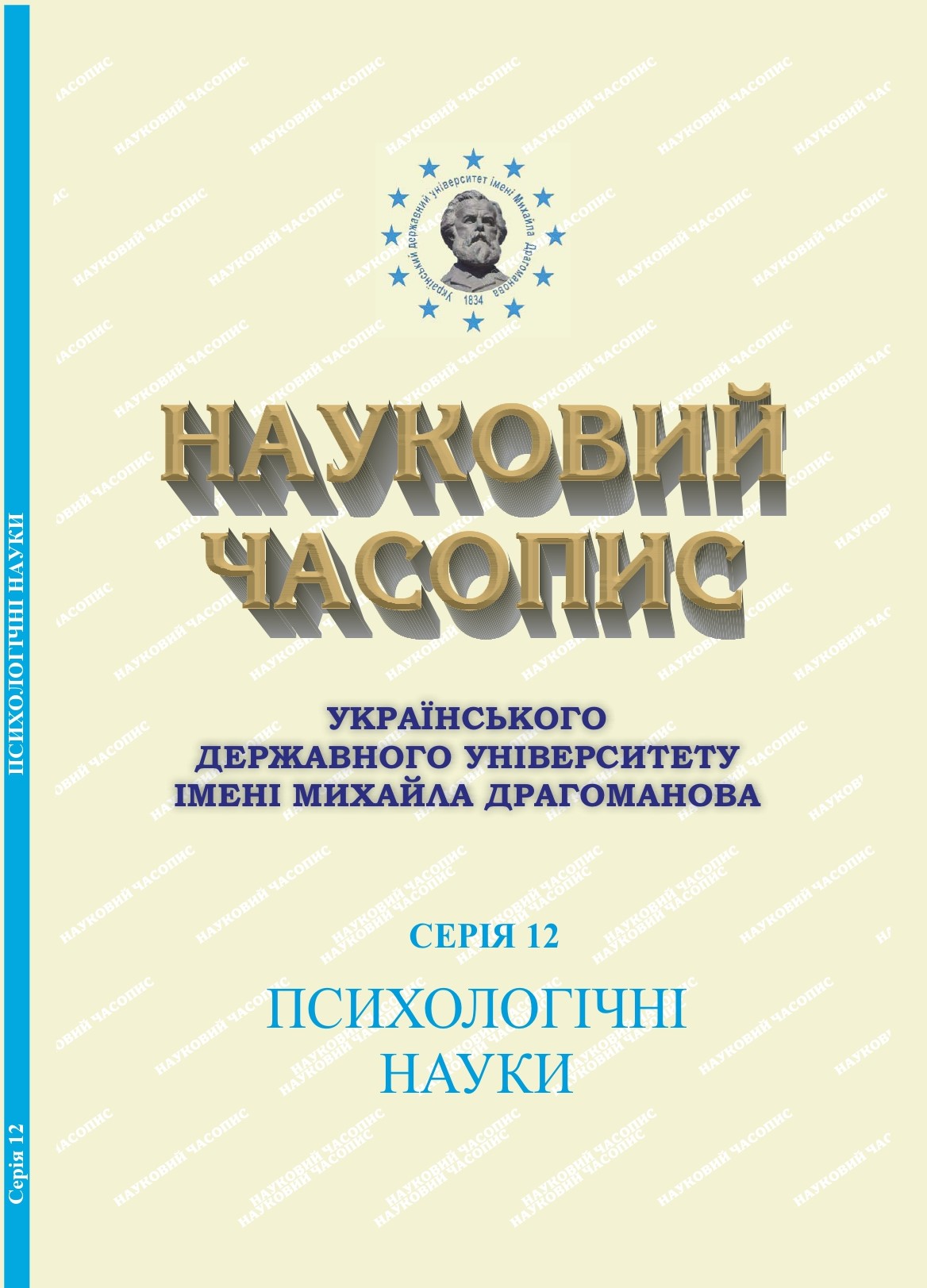ТЕОРЕТИЧНИЙ АНАЛІЗ ФЕНОМЕНУ ПОСТТРАВМАТИЧНОГО ЗРОСТАННЯ У ЗАРУБІЖНІЙ НАУКОВІЙ ЛІТЕРАТУРІ
DOI:
https://doi.org/10.31392/UDU-nc.series12.2024.24(69).07Ключові слова:
посттравматичне зростання, психологічне благополуччя, травма, посттравматичний стресовий розлад, теорія динамічних систем, наративна трансформація.Анотація
Стаття дозволяє отримати загальне уявлення про поняття «посттравматичне зростання» у психології, ознайомитись з актуальними науковими роботами зарубіжних вчених, присвячених вивченню цієї проблематики та визначити найбільш проблемні питання у дослідженні зазначеного феномену. Протягом останніх століть наукова література в галузі психічного здоров’я в основному зосереджувалася на негативних наслідках травматичних подій. Тільки віднедавна все більший інтерес науковців привертають особливості стійкості (резильєнтності) та можливі позитивні наслідки травми. Це призвело до появи концепції посттравматичного зростання (ПТЗ), яке визначають як позитивні психологічні зміни, що виникають в результаті подолання важких життєвих обставин. У статті поданий аналіз наукових праць, які розкривають феномен ПТЗ. Визначено основні теоретичні підходи до розуміння посттравматичного зростання. Серед них теорія динамічних систем, модель посттравматичного зростання Р. Тедескі та Л. Калхуна, концепція С. Джозефа та А. Лінлі, модель наративної трансформації Дж. Палса та Д. МакАдамса, а також теорія С. Хобфолла та колег «зростання, орієнтованого на дії». Основна увага акцентується на п’яти сферах життя, що зазнають позитивних змін в ході посттравматичного зростання. Це покращення взаємин з людьми, усвідомлення нових можливостей, розвиток відчуття внутрішньої сили, духовне зростання та підвищення цінності життя. Наголошено, що існує взаємозв’язок між посттравматичним зростанням та посттравматичним стресовим розладом (ПТСР). Зазначено, що ці явища можуть співіснувати, не будучи взаємовиключними. Описано соціальні та психологічні ресурси, які відіграють фундаментальну роль у розвитку ПТЗ, сприяючи адаптації та трансформації особистості після переживання травми. Подані у статті результати теоретичного дослідження є корисними для опрацювання дослідниками, студентами, фахівцями в сфері охорони психічного здоров’я.
Література
- Терен, О. (2024). Моя історія війни – одна з найкращих історій життя. Розмова. (Відео) YouTube. Режим доступу: https://www.youtube.com/watch?v=RmZ-6kn7Hvs .
- Hobfoll, S.E., Hall, B.J., Canetti-Nisim, D., Galea, S., Johnson, R.J., & Palmieri, P.A. (2007). Refining our understanding of traumatic growth in the face of terrorism: Moving from meaning cognitions to doing what is meaningful. Applied Psychology, 56(3), 345–366. https://doi.org/10.1111/j.1464-0597.2007.00292.x
- Jayawickreme, E., & Blackie, L.E. (2014). Post–traumatic growth as positive personality change: Evidence, controversies and future directions. European Journal of Personality, 28(4), 312–331. https://doi.org/10.1002/per.1963
- Joseph, S., & Linley, P.A. (2005). Positive adjustment to threatening events: An organismic valuing theory of growth through adversity. Review of general psychology, 9(3), 262–280. https://doi.org/10.1037/1089-2680.9.3.262
- Mangelsdorf, J. (2020). Posttraumatisches Wachstum. Zeitschrift für Psychodrama und Soziometrie, 19(1), 21–33. Режим доступу: https://link.springer.com/article/10.1007/s11620-020-00525-5
- Ogińska-Bulik, N. (2013). Potraumatyczny wzrost–zróżnicowanie ze względu na rodzaj doświadczonego zdarzenia oraz płeć i wiek badanych osób. Acta Universitatis Lodziensis. Folia Psychologica, 17, 51–66. https://doi.org/10.18778/1427-969X.17.04
- Pals, J.L., & McAdams, D.P. (2004). The transformed self: A narrative understanding of posttraumatic growth. Psychological Inquiry, 15(1) 65–69. Режим доступу: https://www.jstor.org/stable/20447204
- Romanyshyn, A. (2022). Narrativity and Post-Traumatic Growth: Or, the Right Way to Tell Stories. edu. Режим доступу: https://www.academia.edu/
50756326/Narrativity_and_Post_Traumatic_Growth_Or_the_Right_Way_to_Tell_Stories - Tedeschi, R.G., & Calhoun, L.G. (2004). “Posttraumatic growth: conceptual foundations and empirical evidence”. Psychological inquiry, 15(1), 1–18. Режим доступу: https://www.tandfonline.com/doi/abs/10.1207/s15327965pli1501_01

